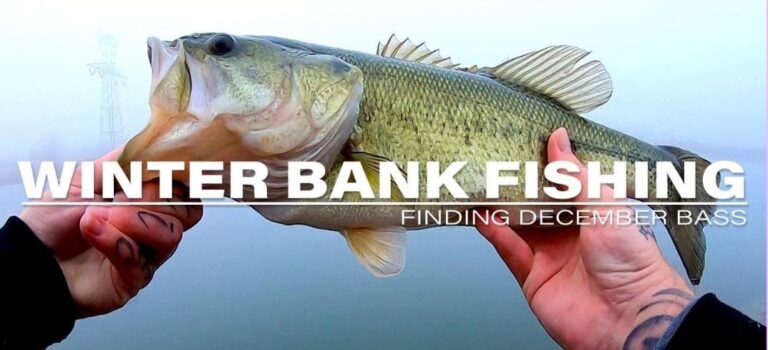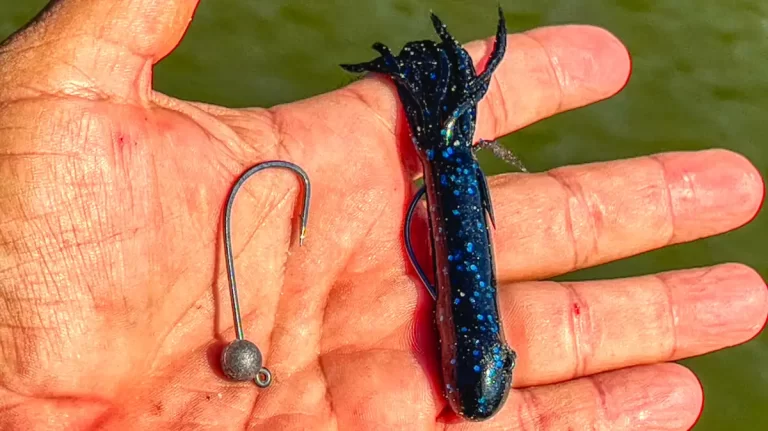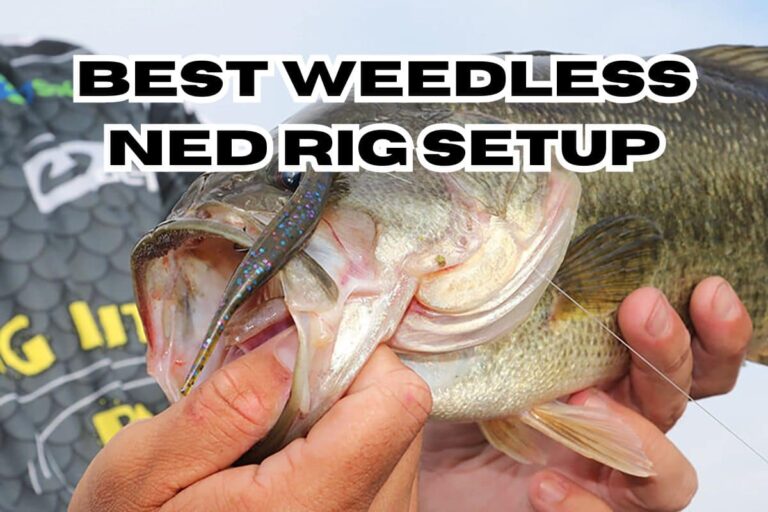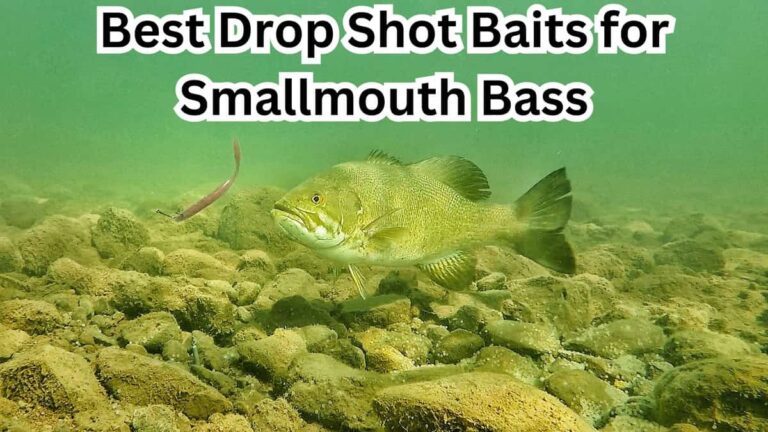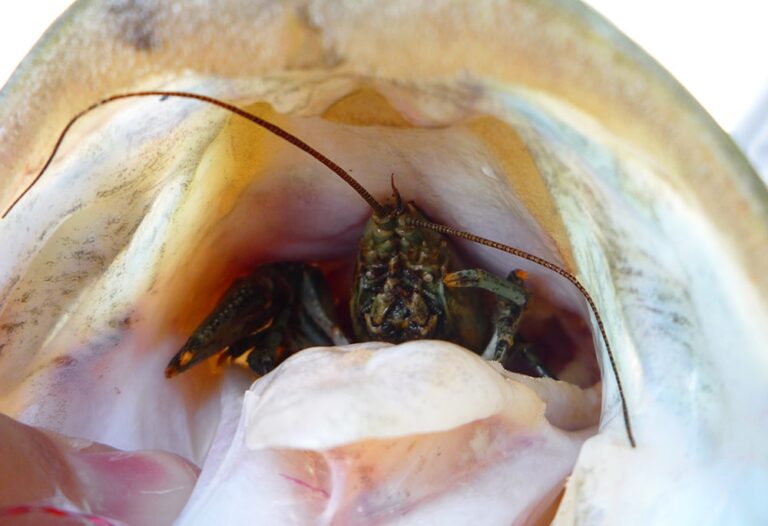Best Time to Fish for Bass in a Pond
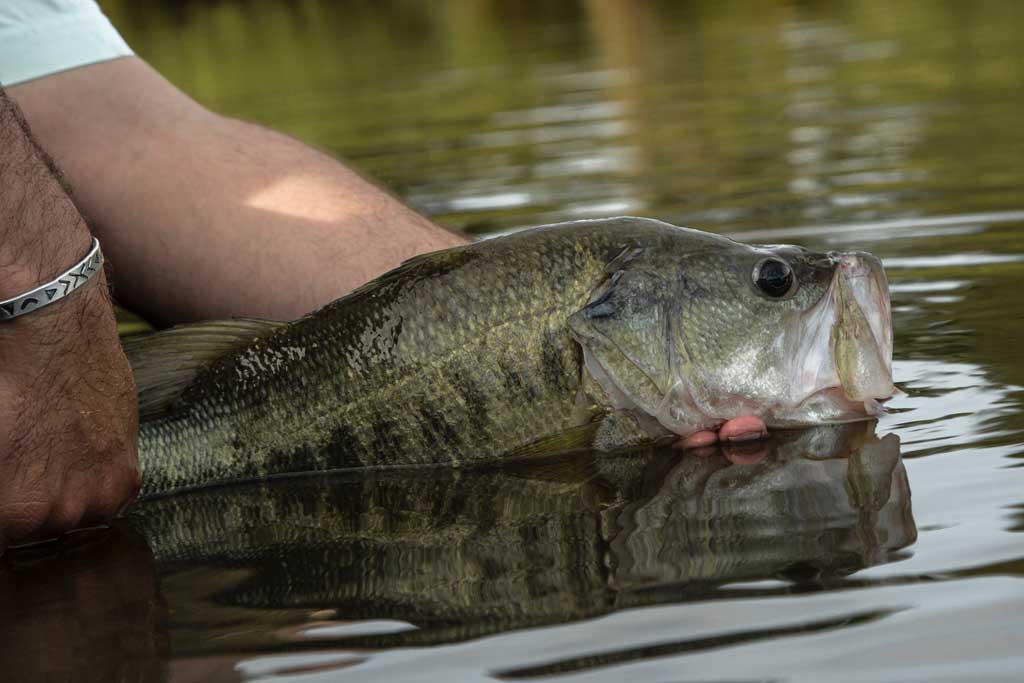
There isn’t exactly one single “best time to fish for bass in a pond”.
Factors such as weather, season, barometric pressure, and other things will influence the best time to catch bass.
When pond fishing for bass, you are usually limited to fishing from the bank.
When you have less water to fish in a pond, it is important that you make the most of it by fishing at the right time.
Best Time of Day to Bass Fish
Like I said before, the late evening is the best time to catch bass. As the sun is going down, the fish become very active and very aggressive.
They are not at risk of overheating in the sun or being plucked out of the water by predators such as hawks, eagles, snakes, and other animals that eat fish.
Morning Fishing
The early morning is a close second. The early morning is a great time to fish for the same exact reasons as the evening.
The main problem with morning fishing is just the convenience. It can be difficult to wake up super early to go fishing and the fishing will get worse and worse as your trip goes on.
Also Read: Best Early Morning Fall Bass Lures
Best Season to Fish for Bass
The two best seasons to fish for bass in ponds are without a doubt, spring and fall.
During the summer, temperatures are too high and bass tend to head to the deeper areas of the pond and do whatever they can to stay cool. This includes not chasing after prey as much.
In the winter, fish also head to the deeper water because it holds its warmer temperatures longer.
Fish all become sluggish in the winter and go into a semi-hibernation to conserve as much energy they can.
Spring Pond Fishing
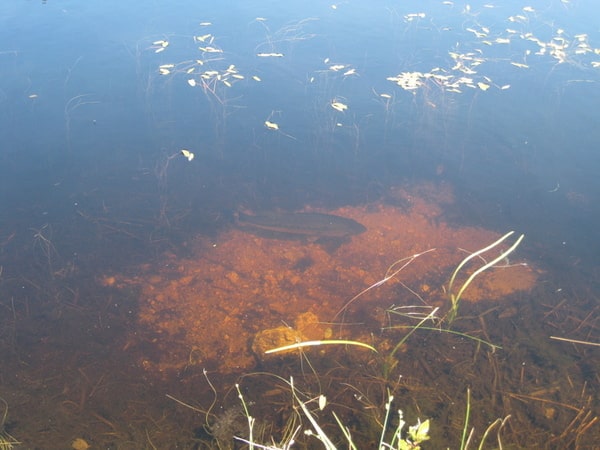
Bass are very active and aggressive in the spring time.
During the pre-spawn phase of spring, bass are trying to eat as much as they can to prepare themselves for laying eggs and raising the young.
During the spawning phase is a great opportunity to sight fish for big bass that are protecting there bed, eggs, or young.
And the post-spawn phase is when bass need to eat a lot in order to replenish themselves after the difficult and tiresome spawn.
Also Read: Best Lures for Pond Bass in Spring
Fall Pond Fishing
Bass eat a lot in the fall. They need to build up as much body fat as they can in order to survive the long winter.
So bass will pretty much eat anything in sight during the autumn season. It is best to use lures with more sound, vibration, and visibility during the fall.
Best Weather for Pond Bass Fishing
Pond bass fishing is an art that thrives under specific weather conditions, optimizing the chances of a successful and enjoyable outing.
While bass can be caught in various weather scenarios, certain conditions tend to yield better results for anglers seeking those prized catches.
- Overcast Days: Cloudy skies are often a boon for pond bass fishing. The diffused light reduces glare on the water’s surface, making it easier for anglers to spot bass and for bass to feel less wary about venturing closer to the shallows. Overcast conditions also make bass more inclined to venture out from their hiding spots to search for prey.
- Mild Temperatures: Bass tend to be more active when temperatures are moderate. Mild weather, where it’s not too hot or too cold, encourages these fish to be more active and responsive to lures or bait. Spring and fall, when temperatures are typically moderate, are prime seasons for pond bass fishing.
- Pre-Frontal Conditions: Fishing just before a storm or cold front arrives can be productive. The changing barometric pressure associated with an approaching front can trigger increased feeding activity among bass, as they sense a potential change in conditions and prepare for it.
- Wind: A gentle breeze or light wind can be advantageous. Wind ripples the water’s surface, providing cover and reducing the visibility of fishing lines and lures. It also stirs up prey, attracting bass to feeding areas.
- Low Light: Early mornings and late afternoons, when the sun is low, create low-light conditions that bass find more comfortable. These periods mirror their natural feeding times, as prey fish become more active during these hours.
- Stable Weather: Sudden, extreme changes in weather can make bass skittish and less likely to bite. Stable weather patterns, where conditions remain consistent, can provide a more predictable and successful fishing experience.
Whether the skies are overcast or the sun is shining, the allure of pond bass fishing remains an enticing adventure for anglers of all levels.
Geographical Impact
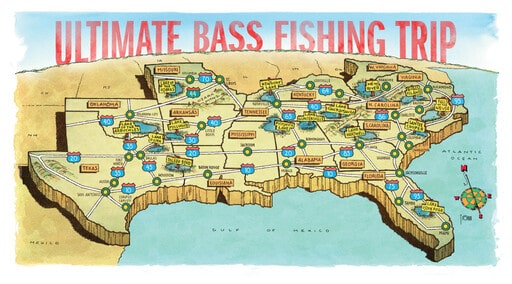
Bass fishing success can be greatly influenced by the geographical region you’re fishing in.
Different locations have distinct climates, water temperatures, and seasonal patterns that affect when bass are most active and receptive to fishing.
Northern Regions
Northern Regions (e.g., Northern U.S., Canada):
- Late Spring to Early Summer: As ice melts and water temperatures rise, bass become more active and move to shallower waters for spawning. This transition usually occurs from late spring to early summer.
- Pre-Fall: Similar to spring, bass are active again in the pre-fall period as they prepare for winter. The months of September and October can provide excellent fishing opportunities.
Southern Regions
Southern Regions (e.g., Southern U.S.):
- Fall: Fall is often considered prime bass fishing time in the South. As water temperatures begin to cool after a hot summer, bass become more active and start feeding voraciously to prepare for winter.
- Winter (Mild): In milder southern climates, winter can also offer good bass fishing, as bass remain active in relatively warmer waters.
Eastern Regions
Eastern Regions (e.g., East Coast of the U.S.):
- Spring: Spring is a peak time for bass fishing along the East Coast. As water temperatures rise, bass move into shallower waters to spawn and feed, making them more accessible to anglers.
- Early Fall: The early fall period, from September to October, can also yield great results as bass feed aggressively before winter.
Western Regions
Western Regions (e.g., West Coast of the U.S.):
- Late Spring to Early Summer: Like other regions, late spring to early summer is a productive time for bass fishing in the West. Bass become more active in warmer waters.
- Late Fall: In some western areas, late fall can provide excellent fishing opportunities as water temperatures remain relatively stable.
Key Takeaways
- Best Time of Day:
- Late evening is the optimal time for bass fishing in ponds.
- Early morning is also effective but may be less convenient for some anglers.
- Best Seasons:
- Spring and fall are the prime seasons for pond bass fishing.
- Summer sees bass retreat to deeper areas, while winter results in sluggish behavior.
- Weather Conditions:
- Overcast days, mild temperatures, pre-frontal conditions, wind, and low light enhance bass activity.
- Stable weather patterns are preferable, while extreme changes may make bass less likely to bite.
- Geographical Impact:
- Different regions (Northern, Southern, Eastern, Western) have distinct fishing seasons influenced by climate and water temperature.
- Understanding regional patterns is crucial for successful bass fishing.
Also Read: Worst Time of Day to Go Fishing
FAQ
Q1: What is the best time of day to fish for bass in a pond? A: Late evening is optimal, but early morning is also effective due to increased bass activity.
Q2: What are the best seasons for pond bass fishing? A: Spring and fall are the prime seasons, while summer sees bass in deeper waters, and winter results in sluggish behavior.
Q3: What weather conditions are favorable for pond bass fishing? A: Overcast days, mild temperatures, pre-frontal conditions, wind, and low light are advantageous. Stable weather patterns are preferable.
Q4: How does geographical location impact bass fishing? A: Different regions have distinct fishing seasons influenced by climate and water temperature. Understanding regional patterns is crucial for success.
Q5: What lures are effective in grassy ponds? A: Knowing the right lures for grassy ponds is essential due to the presence of weeds. In ponds with lots of vegetation, topwater and weedless lures perform the best.
Reeling this In
To sum it up, the best time to fish for bass in a pond is early mornings and late afternoons. These are the moments when bass are most active and likely to bite.
Most ponds will also have lots of weeds so you need to know what lures to use in grassy ponds.
Factors like weather, water temperature, and the season also play a role. Remember, successful bass fishing is about reading nature’s cues and adapting your approach.


